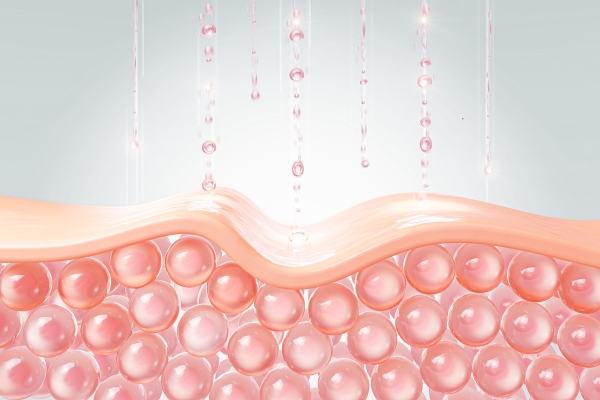Are expensive creams and joint supplements really worth the hype, or are you missing out on the one ingredient that truly makes a difference?
The truth is, most people spend a fortune trying to combat wrinkles and joint pain with products that barely scratch the surface of the problem.
But what if you could target both issues with just one natural supplement?
That’s where collagen comes in.
This protein does more than just smooth skin and cushion joints; it’s the foundation of aging well.
In this post, we’ll dive into why collagen could be the most effective, science-backed way for seniors to reclaim youthful skin and flexible joints—no gimmicks, no overpriced miracle cures, just proven results.

What is Collagen?
Collagen is the body’s main building block, serving as the connective thread that binds everything from your skin and bones to your muscles and tendons together.
Often referred to as the body’s scaffolding, collagen provides the strength and elasticity that keeps your skin firm and your joints flexible.
As the years go by, our body’s collagen levels steadily decline, bringing on unwelcome changes like fine lines, loose skin, and deeper issues like achy, stiff joints.
There are several types of collagen, but three are particularly important for seniors:
Type I Collagen: The most common form, making up 90% of the collagen in your body, is primarily found in skin, bones, tendons, and ligaments. It’s key to maintaining firm, elastic skin and strong connective tissues.
Type II Collagen: This type is predominantly found in cartilage and is crucial for cushioning joints and supporting smooth, pain-free movement.
Type III Collagen: Commonly paired with Type I, this form of collagen helps maintain the integrity of muscles, organs, and blood vessels while contributing to skin firmness and overall tissue strength.
Understanding the role of these different types of collagen is essential to appreciating how supplementing with collagen can target the specific challenges seniors face in both skin and joint health.

How Aging Affects Collagen Levels
Collagen production naturally declines as we age, and the effects are hard to miss.
Starting in your late 20s, your body begins producing less collagen each year.
By the time you reach your 50s and beyond, that decrease becomes more significant, leading to visible and uncomfortable changes.
Sagging skin, deeper wrinkles, and stiff joints are all signs that your collagen levels have dropped.
Without enough collagen to provide structure and elasticity, skin loses its firmness, and joints become less cushioned, making movement more painful.
But aging isn’t the only culprit.
Lifestyle factors like excessive sun exposure, a poor diet, smoking, and high stress levels can accelerate collagen breakdown even further.
UV rays damage the collagen fibers in your skin, while a diet high in sugar can cause glycation, a process that weakens collagen’s structure.
Smoking introduces harmful chemicals that not only reduce collagen production but also degrade existing collagen faster.
When you combine these external factors with the natural decline due to aging, it’s no wonder that maintaining healthy skin and joints becomes such a challenge as we get older.

Benefits of Collagen
Collagen is more than just a beauty buzzword; it’s a critical protein that plays a major role in both skin and joint health, especially for seniors.
As we age, the body’s natural collagen levels decline, leading to common issues like sagging skin, wrinkles, and joint stiffness.
Here’s how collagen supplements can address these concerns and improve overall well-being.
Collagen for Skin Health in Seniors
One of the most noticeable effects of collagen loss is on the skin.
As collagen levels drop, skin loses its elasticity and hydration, leading to sagging, dryness, and the formation of wrinkles.
Supplementing with collagen can help restore some of that lost firmness and smoothness.
Studies have shown that collagen peptides can improve skin elasticity and hydration, leading to a reduction in fine lines and wrinkles.
By boosting the body’s collagen supply, seniors can achieve smoother, firmer skin that looks and feels more youthful. [1]
Collagen for Joint Health in Seniors
Collagen isn’t just essential for skin—it’s also a key component of cartilage, the tissue that cushions your joints.
As collagen declines with age, cartilage weakens, leading to joint pain, stiffness, and an increased risk of conditions like osteoarthritis.
Research has shown that collagen supplements can help reduce joint pain and improve mobility, especially in people with osteoarthritis.
By replenishing the collagen in your joints, you can maintain better cushioning, support smoother movement, and stay active and independent longer.
Whether it’s about smoothing out wrinkles or easing the pain in your knees, collagen supplements offer a double benefit for seniors looking to age gracefully. [2]

How to Choose the Right Collagen Supplement
As collagen supplements become increasingly popular, picking the right one for your specific needs is crucial.
Since not all collagen is the same, knowing what sets them apart will help you make a smarter choice.
Types of Collagen Supplements
There are various forms of collagen supplements, but the most common types include collagen peptides and hydrolyzed collagen.
Collagen peptides are broken down into smaller, more easily absorbed particles, making them highly effective for both skin and joint health.
Hydrolyzed collagen is another term for the same type of supplement—it simply means the collagen has been processed for better absorption.
When it comes to sources, the two main options are marine and bovine collagen.
Marine collagen, sourced from fish, is typically rich in Type I collagen, which is best for skin health.
Bovine collagen, derived from cows, usually contains both Type I and Type III collagen, making it a good choice for overall skin, joint, and gut health.
If your primary focus is on joint health, some supplements also include Type II collagen, which specifically supports cartilage.
Dosage and Absorption
Getting the dosage right is key to seeing results.
For general skin and joint benefits, a daily dose of 5 to 10 grams of collagen peptides is commonly recommended.
However, to get the most out of your supplement, you’ll want to pair it with Vitamin C, which is crucial for collagen synthesis in the body.
Some collagen supplements come with added Vitamin C, or you can simply take a separate Vitamin C supplement or include more Vitamin C-rich foods in your diet.
Quality Indicators
Not all collagen supplements are created equal, so it’s important to choose one that meets high-quality standards.
Look for supplements that are third-party tested, which ensures that the product contains what it claims and is free from contaminants.
Check the ingredient list for clean profiles—avoid supplements with unnecessary fillers, artificial flavors, or preservatives.
Lastly, stick to reputable brands that provide transparency about their sourcing, manufacturing practices, and ingredient quality.

Embrace Aging with Strength: The Power of Collagen
Collagen is more than just a trendy supplement; it’s a powerful ally in maintaining skin and joint health as we age.
From improving skin elasticity and hydration to reducing wrinkles and supporting joint structure, collagen offers significant benefits that can help seniors look and feel their best.
By replenishing this vital protein, you’re giving your body the tools it needs to age with grace and strength.
If you’re looking for a natural way to enhance your well-being, collagen supplementation is worth considering.
Whether your focus is on smoothing out fine lines or easing joint pain, the right collagen supplement can be a game-changer in your health routine.
Remember, aging gracefully isn’t just about accepting the changes—it’s about proactively giving your body what it needs to thrive.
With the right care and support, you can continue to enjoy vibrant skin, flexible joints, and an active lifestyle well into your golden years.
References
Nutrients
Martínez-Puig D, Costa-Larrión E, Rubio-Rodríguez N, Gálvez-Martín P. Collagen Supplementation for Joint Health: The Link between Composition and Scientific Knowledge. Nutrients. 2023 Mar 8;15(6):1332. doi: 10.3390/nu15061332. PMID: 36986062; PMCID: PMC10058045.

